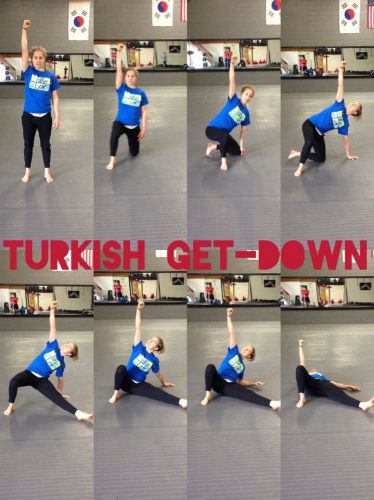
Don’t be THIS guy. He likes to make it seem like anyone wanting better than his own life of slob-ism is a loser. In fact, HE is a loser.
If you had an alcoholic friend…
Would you invite him to a bar on Friday night?
Would you throw a party and supply a keg in his honor?
Would you offer him a beer when he came over to watch the big game?
Au contraire, you say!
You would try to think of other activities for Friday night.
You would find ways to celebrate without a keg.
You would make sure you had his favorite seltzer water to offer upon his arrival.
In other words, you would do everything you could do to encourage his triumph over addiction!
Yet, when your friend is on a diet, do you make any effort at all to set him up for success?
Somehow, it seems, friends and family have more of a sabotage mindset in the diet scenario.
We want to be an accomplice in his failure rather than a bolster for his achievement.
It becomes a game of seeing how far we can push our friend’s self-discipline.
We poke fun when he orders a salad with grilled chicken, and we wave our greasy burger and fries in his face, obnoxiously licking our cheesey, salty fingers after each exaggerated bite. We smugly gulp our soda and release an audible “ahh” of refreshment as he sips his water with lemon.
Is it heresy to liken this to indulging in the latest micro-brew–placing it in front of his nose so that he can get a whiff, describing all of the notes, the finish and how it’s perfectly hoppy, giving a play-by-play of our swigging experience–while out with our alcoholic friend who has been doing his best to abstain?
I actually don’t think it’s much of a stretch.
Here, then, is how to not be a jerk friend.
Let’s brainstorm some ways you can support your friend as he/she commits to healthier nutritional habits OR even a short-term diet.
Before we really get going on this….Here on my opening notes:
Your friend might not verbalize to you that he is on a diet. He might just, one day, order a salad and an unsweetened iced tea instead of his usual fish n’ chips with a Coke. Notice this but do not comment on it. (If you reallllly feel like you are close enough to this person to comment, simply offer an objective affirmation. “That sounds a lot more energizing than your usual!” OR “Yum, I have heard they have great salads here.”)
Your friend might use a variety of tones or angles to announce his diet plans. He gets to do this; it’s his prerogative to put up a facade. Don’t question it and don’t join in. Just accept that “his wife is forcing him” …or whatever.
OK, so if your friend reveals to you that he/she is beginning a diet…
First, be open and curious! (Don’t be defensive or let your lack of motivation somehow seep into this.) What’s her goal? Is she trying to lose 10 lbs. in 4 weeks, or is she trying to change her nutritional lifestyle? Is she just trying to “eat healthier” or is she trying to hit certain targets or eliminate certain things?
Supporting someone doing a 14-Day Fat Flush is completely different from supporting someone who wants to transition to vegetarianism or adopt a Mediterranean diet or just start reducing her consumption of added sugars. [See last week’s article for more on this. There are few things more annoying to someone on the Paleo diet than someone trying to convince her that their “gluten-free lasagna” is super-healthy.]
Next, it is imperative that you find out how much the dieter wants you to be involved. I suggest–get this–asking. Simply ask your friend what the best support looks like. Everything else depends on the answer to this question. Answers will vary widely.
Maybe she wants you to give her a look if you see her reach for something “off limits”; maybe she wants you to acknowledge when she makes a choice that is in line with her goals; maybe she wants you to pretend you have no idea she’s on a diet at all.
Let me reiterate: Listening to your friend’s response, and following through on their request can make all the difference in the world to them. We truly cannot downplay this. You offer a vital role, ultimately, in the quality of your friend’s life.
You can cheer for them from the sidelines, join them as they run toward their goals, OR… you can be the jerk who hinders them from their full potential.
You can help your friend feel emotionally and physically well, help him prevent a heart attack, help him live to enjoy his grandkids. You can help your friend find vitality and energy he didn’t realize he had!
Conversely, you can contribute to your friend’s dependence on insulin injections…etc….etc….
Depending on how your friend wishes you to support him/her,
here are some simple suggestions that may be worth considering:
- Take your friend and her dieting efforts seriously, regardless of her end goal, her reasons, and your opinion about those things. (Also, discount your own motivation or lack of motivation to improve your diet.)
- Be mindful when choosing “hang-out activities.” Pick restaurants that offer tasty healthful options and avoid those that offer his favorite indulgence. Avoid making every event together revolve around food.
- Make one simple gesture of solidarity, such as ordering a glass of water rather than soda or not ordering your usual fried appetizer.
- There’s no need to comment on her diet every time you get the chance. “Oh, you can eat that?” and “Sorry, you can’t have this,” are both super-unhelpful and quickly become burdensome. And annoying. “I’ll eat all of your gluten” also tires quickly.
- When your friend comes to your house for a meal or an event with snacks/drinks, have options that fit into his diet. (Hopefully you were listening when he told you about it. “Look, I have baked chickpeas for you!” is the worst announcement ever to your friend who is avoiding legumes.)
- As would a teammate, celebrate your friend for any and all victories; never celebrate his giving in by applauding him or your efforts to break him down.
- Don’t help your friend justify cheating on his plan.
- Don’t offer food or drink more than once. It is easier to turn down a soft pretzel once than it is to turn it down twice.
- Respect the plan she has chosen to follow. Once she has committed, don’t try to provide differing approaches. Many paths lead to the goal, but off-shoots are distractions.
- As much as your friend is willing, encourage her to talk about how she’s feeling–what’s easy, what’s difficult, her struggles, and her triumphs.
- Try to point out positive changes that you see in your friend. Is her skin improved? Is his posture better? Does she seem happier? Does he have more energy? Mention it!
- DON’T mock. DON’T gloat. DON’T say anything if you can’t say anything encouraging.
- DON’T say, “Oh, it’s a special occasion!” or any other hooey that your friend isn’t already trying to battle internally.
- Finally, be understanding. Your friend might be going through a lot of mental anxiety as he navigates his diet. If he seems distracted, he problem is. He’s considering if the wings might be “worth it.” She’s wondering how the bread is and counting down the days to her next “refeed.”
In other words, set your friend up for success through the environment that you create. Be a constant force of good as they take the difficult steps toward reclaiming their health through diet. It isn’t easy. They deserve a pat on the back merely for deciding to tackle this goal in the first place.
One last way to support you friend? Send ’em to read this, to let them know you are starting to “get it.” You two can do the 5-Minute Sweaty together. 🙂
If you are the “dieting friend” whose “jerk friends” need to step up their game, share this post. Let them know that you could really use a teammate right now. Plus, find an online support system by joining Pat’s community. (To start, just sign up for his emails.)
5-Minute Sweaty
5 minutes of alternating, unweighted 1.5-rep Turkish Get-Ups:
Start standing, go to the floor, go back to standing (that’s 1 full rep), and then go down one more time (that gets you the extra half-rep we’re looking for her). Focus on completing each 1.5-rep as slowly as possible while constantly moving with tension.
Here’s a visual:

Great Article, Alyssa. It’s amazing how a little positivity can help motivate for success just as easy as a little negativity can hold them back.
I feel being the example of supportive behavior among a group of friends helps not only that friend, but also those around them who would possibly be non-supportive.
One person’s candle doesn’t shine brighter if they blow out someone else’s, after all.
Thanks for the inspiration! Have a great day! 🙂
~Stephan
Thanks, Stephan! I whole-heartedly agree–and I love your summary that “one person’s candle doesn’t shine brighter if they blow out someone else’s.” It’s silly how tempted to competition we are…
Happy weekend, and thanks for stopping by. 🙂
Alyssa